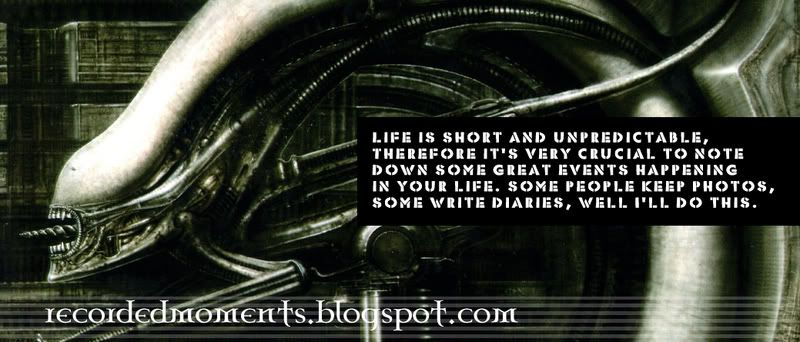 We often prescribe before making a proper diagnosis when communicating. We should first take the time to deeply understand the problems presented to us.
We often prescribe before making a proper diagnosis when communicating. We should first take the time to deeply understand the problems presented to us.The real key to influence is example - your actual conduct. Your private performance must square with your public performance.
Unless people trust you and believe you understand them, they will be too angry, defensive, guilty or afraid to be influenced. Skills of empathic listening must be built on a character that inspires openness and trust and high emotional bank accounts.
Empathic Listening
People tend to filter the information they receive through their own paradigms, reading their autobiography into other people's lives, or projecting their own home movies onto other people's behavior.
When another person is speaking, we usually "listen" at one of four levels: ignoring, pretending, selective listening, or attentive listening. We should be using the fifth, highest form of listening - empathic listening.
Active or reflective listening is skill-based and often insults the speaker.
Empathic listening is listening with intent to understand the other person's frame of reference and feelings. You must listen with your ears, your eyes and your heart.
Empathic listening is a tremendous deposit into the emotional bank account. It's deeply therapeutic and healing because it gives a person "psychological air."
Next to physical survival, the greatest need of a human being is psychological survival - to be understood, to be affirmed, to be validated, and to be appreciated.
Empathic listening is risky. It takes a great deal of security to go into a deep listening experience because you open yourself up to being influenced. You become vulnerable. In order to have influence, you must be influenced.
Diagnose Before You Prescribe
It can be dangerous to prescribe without an accurate diagnosis.
An effective salesperson seeks to understand the needs, concerns and situation of the customer. An amateur sells products, the professional sells solutions.
This is a common denominator principle with its greatest power in interpersonal relationships.
Four Autobiographical Responses
Evaluate - Agree to disagree.
Probe - Ask questions from your own frame of reference.
Advise - Give counsel based on your own experience.
Interpret - Explain motives and behavior based on your own motives and behavior.
These behaviors are controlling and invasive. They may also be logical, and the language of logic is different from the language of sentiment and emotion.
You will never be able to truly step inside another person and see the world as he sees it until you develop the pure desire, the strength of personal character, and the positive emotional bank account as well as the empathic listening skills to do so.
The skills involve four developmental stages:
1. The least effective is to mimic content, which is taught in active or reflective listening - repeating what the person said back to him or her.
2. To rephrase the content is more effective, but still limited to the verbal communication. It's putting the persons' meaning in your own words. This is a "logical" approach.
3. To reflect feeling involves the right brain, emotional level.
4. To rephrase the content and reflect the feeling includes both the second and third, attempting to understand both sides of his communication and give psychological air.
All the well-meaning advice in the world won't amount to a hill of beans if we're not addressing the real problem. And we'll never get to the real problem if we can't see the world from another point of view.
By seeking first to understand, we can turn a transactional opportunity into a transformational opportunity. We can get on the same side of the table looking at the problem instead of staying on opposite sides staring at each other.
Emotional statements require empathic, logical-emotional responses.
Children will open up to their parents if they feel their parents will love them unconditionally and will be faithful to them afterwards, never ridiculing them.
Sometimes talking isn't necessary to empathize; the words may get in the way.
Empathic listening takes time, but not as much time as backing up and correcting misunderstandings, including living with problems and the results of not giving the people you care about psychological air.
Understanding and Perception
By understanding the other person, we can learn their paradigms through which they view the world and their needs. Then we can try to resolve our differences to work together.
Then Seek to be Understood
Knowing how to be understood is as important as seeking to understand in reaching Win/Win solutions, and requires courage.
The Greek philosophy of Ethos, Pathos, and Logos gives the sequence for effective communication. Ethos is your personal creditability. Pathos is the empathic side. Logos is the reasoning side. Most people go straight to the logical side without first establishing their character and building the relationship.
Describe the alternative they favor better than they can themselves. Then explain the logic behind your request.
When you can present your own ideas clearly, specifically, visually and most importantly contextually - in the context of a deep understanding of their paradigms and concerns - you significantly increase the creditability of your ideas.
One on One
Habit 5 is powerful because it focuses on your circle of influence. It's an inside out approach. You are focusing on building your understanding. You become influenceable, which is the key to influencing others. As you appreciate people more, they will appreciate you more.
Opportunities to practice this habit proactively occur every day with your co-workers, customers, friends, and family.
When we really deeply understand each other, we open the door to creative solutions and third alternatives. Our differences are no longer stumbling blocks to communication and progress. Instead they become the stepping stones to synergy.












4 comments:
Hmmmm.... *student Eileen raising her hand* Does that mean everytime I talk to you, I will be analysed? Wukakaka..... Never mind, I create my own 7 unique habits of Eileen.
Eh, my mum studies some counselling one, dun play play. Wukakaka.... I study human socialogy *wink wink*
On a serious note, this habit is really nicely written. Many times we try to assume things merely from listening to others by projecting our own views into it.
Listening is really a skill which we need to master, not only for self improvement but also for a better relationship with others.
I will always be here for a listening ear wor :) And you better do the same =_= Wukakaka
Hye,
Good, informative and interesting article read ever...
It is the fact that without presenting our own ideas clearly, specifically, visually and most importantly; we could not survive or having a self confidence ... in case of selective listening it is already proven.
thanx for good info...
Regards,
debdeodhar
http://nazarsudhakar.blogspot.com/2008/02/selective-listeneing.html
eileen: dun worry. our communication skill so damn good no need scared wan wo ~~ wahahaha
quality: hey thanks for dropping by. u have a nice pinkish site by the way :p and yes listening and understanding is a skill we need to improve so we could start to make the world a better and understanding place :p
Post a Comment